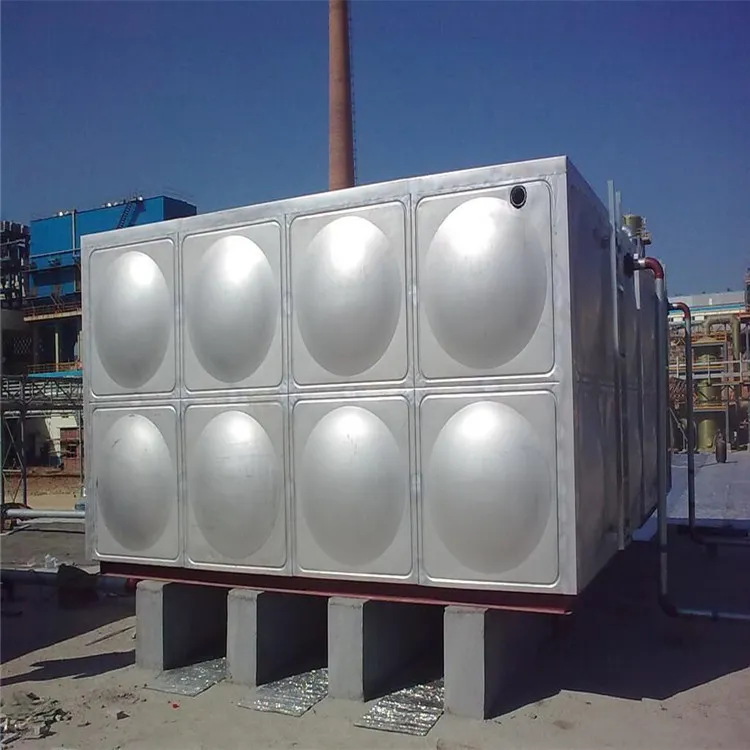loading...
- No. 9, Xingyuan South Street, Dongwaihuan Road, Zaoqiang County, Hengshui, Hebei, China
- admin@zjcomposites.com
- +86 15097380338
- Welcome to visit our website!
Exploring the Benefits and Applications of FRP Vessels in Modern Engineering
FRP Vessels A Modern Approach to Industrial Storage and Transportation
In today’s rapidly evolving industrial landscape, the use of advanced materials is paramount to increasing efficiency and safety in various applications. One such material that has garnered attention is fiberglass reinforced plastic (FRP). FRP vessels are increasingly being adopted for storage and transportation purposes across multiple industries due to their unique properties. This article explores the benefits, applications, and considerations of FRP vessels.
Understanding FRP
Fiberglass reinforced plastic is a composite material made from a polymer matrix reinforced with glass fibers. This combination provides a strong yet lightweight alternative to traditional materials such as steel and aluminum. FRP is known for its exceptional resistance to corrosion, which makes it particularly suitable for storing chemicals and other corrosive substances. Additionally, the material can be manufactured in various shapes and sizes, making it adaptable for a wide range of applications.
Advantages of FRP Vessels
1. Corrosion Resistance One of the most significant advantages of FRP vessels is their resistance to corrosion and chemical attack. Unlike metal tanks that can rust and degrade over time, FRP vessels maintain integrity even when exposed to harsh chemicals, ensuring a longer lifespan and reducing maintenance costs.
2. Lightweight FRP vessels are considerably lighter than traditional steel vessels. This lightweight nature not only facilitates easier transportation and installation but also reduces the structural support requirements, potentially lowering construction costs for related facilities.
3. Cost-Effective While the initial investment for FRP vessels may be higher than that of some traditional materials, the long-term savings due to reduced maintenance, longevity, and the absence of corrosion issues often justify the expense.
4. Thermal Insulation FRP materials possess good thermal insulation properties, which can be crucial in maintaining the temperature of the contents. This can be particularly beneficial in industries where temperature control is essential.
5. Customization FRP can be molded into complex shapes and sizes. This flexibility allows manufacturers to create vessels that meet specific client needs, whether for storage tanks, pipes, or specialized containers.
Applications of FRP Vessels
frp vessels

The versatility of FRP vessels makes them suitable for a range of applications across numerous industries
- Chemical Industry Due to their corrosion resistance, FRP vessels are widely used in the chemical industry for storing corrosive substances, including acids and alkalis.
- Water and Wastewater Treatment FRP is increasingly being used in water treatment applications, such as tanks and piping systems, where the material's resistance to corrosion and chemicals ensures safe and effective management of water resources.
- Food and Beverage Certain grades of FRP are compliant with food safety standards, making them suitable for storing food ingredients and beverages without risk contamination.
- Oil and Gas In this sector, FRP vessels are employed for transporting and storing oil products and chemicals due to their strength and resistance to external corrosive environments.
- Marine Applications FRP is also utilized in marine environments for tanks, piping, and boat hulls, where exposure to saltwater and other elements can cause significant wear and tear on traditional materials.
Considerations and Limitations
While FRP vessels offer numerous benefits, there are a few considerations to keep in mind. The fabrication process for FRP can be labor-intensive, and it requires skilled professionals. Furthermore, in high-temperature applications, certain types of FRP may not perform well compared to metals. Therefore, understanding the specific requirements of the intended application is crucial when selecting materials.
Conclusion
FRP vessels represent a significant advancement in the field of industrial storage and transportation. With their corrosion resistance, lightweight nature, and long-term cost benefits, they provide a viable alternative to traditional materials. As industries continue to seek innovative solutions that enhance safety, efficiency, and sustainability, the adoption of FRP technology is likely to expand, making it an integral part of modern industrial practices. Embracing FRP vessels not only addresses immediate needs but also aligns with a forward-thinking approach to resource management and environmental safety.
-
GRP Structures: The Future of Lightweight, High-Performance EngineeringNewsJun.20,2025
-
FRP Water Tank: High-Performance Storage for Corrosive and Clean Water SystemsNewsJun.20,2025
-
FRP Square Tube: The New Industry Standard for Chemical and Structural ApplicationsNewsJun.20,2025
-
FRP Pultruded Profiles: The Ultimate Choice for Lightweight Structural StrengthNewsJun.20,2025
-
FRP Handrails: The Safer, Smarter, and Stronger Choice for Modern InfrastructureNewsJun.20,2025
-
FRP Grating: The Smart Solution for Durable, Lightweight Industrial FlooringNewsJun.20,2025
-
Why Choose a Galvanized Water Tank for Your Storage NeedsNewsMay.21,2025
